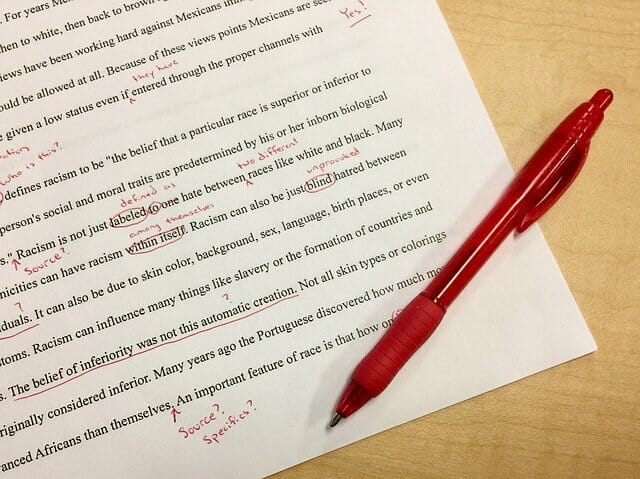600 Confusing English Words Explained
Today we’re going to talk about the differences between the words review and revise. This can be super confusing because they’re used slightly differently in American English vs. British English. But by the end of the lesson you’ll understand clearly when to use each one.
There are so many confusing words like this in the English language, and that’s why I wrote a book about them – it’s called 600+ Confusing English Words Explained and everything inside it comes from questions asked by students like you. So if you have a question about a pair of confusing words, you’ll likely find the answer and explanation inside this e-book.
How to use the word REVIEW in English
All right, let’s begin with the word review. It has a couple different uses:
One is when you take something you previously learned and you study it again.
For example, if there’s a big final exam at the end of the semester, you would spend a few days reviewing everything you learned during the semester. Or if you have a big presentation to give and you’ve previously prepared some notes, then a few minutes before the presentation you might review the notes to remind yourself of the main details you want to cover in your presentation. The action of reviewing helps bring things back to your mind, it helps you remember better.

Another way we use “review” is a little more general, it’s used beyond the specific context of studying – and that is to look back on past things, consider them, and maybe evaluate or analyze them.
At the end of the year, a lot of people like to review the events that happened – so we think about these past events, maybe we consider whether they were good or bad, and how they affected us.
At work, managers often give employees a performance review – this means the manager considers the employee’s past work in general, and identifies some strong points, weak points, and things to improve or change.
And when it comes to movies, books, music, theater, and things like that, there are people who review or write reviews of these artistic productions. Meaning they watch or read, and then they reflect, describe, and analyze the movie, play, or book. So you’ll often hear people say “that book got great reviews” if a lot of people have written positive observations of it.

OK so review is used for studying something again to remind yourself of it, as well as for looking back and reflecting on something in order to evaluate it.
How to use the word REVISE in English
Now let’s look at revise.
If we revise a text, it means we make changes, adjustments, or improvements to it. If I write an article, the first draft (first version) of my article might be okay, but not great – so later, I would revise it, I’d make changes to it and improve it, so that it can become better.

You can revise plans or procedures – maybe your company starts using a new technology, so you need to update the procedures at work. You can also revise an estimate or projection, so if you had predicted that sales would be $50 million dollars for the year, but the economy goes badly so fewer people are buying things, then you might need to revise that projection, change it, and make it lower.
Scientists often revise theories as new information is discovered – when we find out something new, we change or adjust the theory.

So in American English:
- when we review something, we only look at it and think about it
- when we revise something, we change it to make it better
However, in British English, the word revise is also used for studying something again. In American English we would always say “review for a text/exam” and in British English you could say “revise for a text/exam.” Again, that use of revise to mean “study again” is specific to British English.
Let me know if you have any further questions about revise and review, and again make sure to check out my 600+ Confusing English Words Explained E-Book to get lots of clear answers and examples for words like these. It’ll really help you understand the English language better and use the correct words more confidently.






